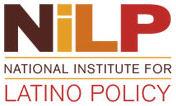
NiLP Guest Commentary
Thoughts on Latino Strategy on The Trump Challenge
By Zoilo Torres
The NiLP Report
 As progressive Latinos on the political left we should think strategically
when addressing the right-wing challenges currently led by Donald J. Trump.
But before going into the essence of the question at hand, permit me to
digress for a brief moment.
As progressive Latinos on the political left we should think strategically
when addressing the right-wing challenges currently led by Donald J. Trump.
But before going into the essence of the question at hand, permit me to
digress for a brief moment.
In the presidential election of 2016, some of us were thinking strategically when we decided to support Hillary Clinton for president. Our objective was to stop Trump's destructive agenda from destroying whatever progress we'd made during the prior eight years of President Obama's incumbency. Supporting the most progressive candidate among the Democratic options was not the selection criteria. If it were, Bernie Sanders would have been a clear choice. However, the candidate with the most potential of winning was for us the controlling imperative. The overarching strategy was to stop Trump. Supporting Clinton was a tactical decision in the world of real politics.
As we all know, Clinton did win the popular vote by almost 3 million, which included over 70% of the Latino vote. She, unfortunately, lost to an archaic and democratically bankrupted Electoral College by a little over 70,000 votes from three battle ground states. A series of mistakes were undoubtedly made relating to the candidate, her campaign, and a series of intervening externalities involving the Democratic Party, the Federal Bureau of Investigation, and other forces operating in the national and international sphere including Russian intervention. But as progressive and left Latino activists we should not waste our time re-litigating past political history, especially when that history continues to play itself out. Today we are faced with what we had worked hard to avoid: How do we address the Trump challenge?
This is my contribution to answering Angelo Falcon's question: "Will Latino Leaders Effectively Address the Trump Challenge?" in the August 28th NiLP Report..
As I ponder the question, I reflect on my own extended family comprised of fathers, mothers, sisters, brothers, aunts, uncles, cousins, and other extended relatives of all genders and sexual orientations. While grappling with getting a handle on a relevant political strategy to address the proposed challenge, I realize we are all a semblance of the diversity of creeds and political stripes prevalent in the greater society.
We are Puerto Ricans/Latinos who in many ways share cultural traits and who frequently intermingle with diverse Latino nationalities. We are an assortment of working class laborers and professionals. We are business people, some of whom support Donald Trump. There may also be many evangelical Christian fundamentalists among us inclined to vote for Trump, and who are reticent to acknowledge the inevitable train wreck they're riding. Not to go unmentioned are the churchless and irreligious in our ranks living in Puerto Rico and throughout the United States. Politically, some are appalled by the Trump electoral victory; some have bigger immediate problems and simply don't care. Still others unabashedly cater Donald Trump.
A Latino strategy to address the Trump challenge must begin with an adequate reading and a corresponding narrative of the mix of needs and aspirations of Latino families. This narrative consequently embraced by the Latino political leadership, should be advocated for within the institutions of government, civil society, political parties, cultural and educational establishments, foundations, and the mass media; institutions that shape the economic, ideological, and intellectual life of our Latino communities. I believe that it is here where addressing the Trump challenge begins.
The politically progressive left can play a major role in helping articulate a narrative that speaks to an agenda of economic and educational issues that include a jobs development component for low and moderate income communities with high Latino concentrations. Such an agenda should include the incubation of so called Latino owned small and medium size businesses. The agenda should speak to the protection and conservation of public housing and the reaffirmation and expansion of the Section 8 rent subsidies for the poor.
This should go hand-in-hand with a demand that banks provide the financial resources to Latino families that aspire and are ready to become home owners. It must denounce the Repeal and Replacement of the Affordable Care Act, so called Obamacare, and overwhelm that conservative corporate effort with an ACA Preserve, Improve, and Expand Campaign in the Latino community. And finally, the Latino community has the right to an environment free of toxic waste and pollution and the civil and human right to equal protection under the law free from ethnic and racial discrimination and police abuse.
Latinos leaders should address the Trump challenge with a progressive left agenda comprehensively encompassing Latino interests. This agenda should not only be carried into the centers of political power, but discussed around every dinner table, place of worship, labor union, community-based organization, and disseminated through mass media outlets.
Much of the work of articulating a Latino agenda has been done by existing Latino coalitions, for example, the National Hispanic Leadership Agenda. Concerning adding the 3.5 million U.S. citizens living in Puerto Rico to the Latino agenda, we can look to the work the Puerto Rico-based Center for a New Economy has done regarding the island's crisis and possible economic development alternatives that could be adopted.
Admittedly, however, we do not have a structure in place singularly focused on making this project happen. Nor do we have a foundation or some other form of organization that would house and resource this timely and very significant undertaking. Perhaps as we advance this discussion one may step forward.
Zoilo Torres is a life-long community, labor, and political organizer, currently an independent organizing consultant and Field Representative with SEIU 32BJ, He occasionally lectures on community empowerment at New York University and is a regular contributoir to The NiLP Report. He can be reached at zttorres53@gmail.com.
